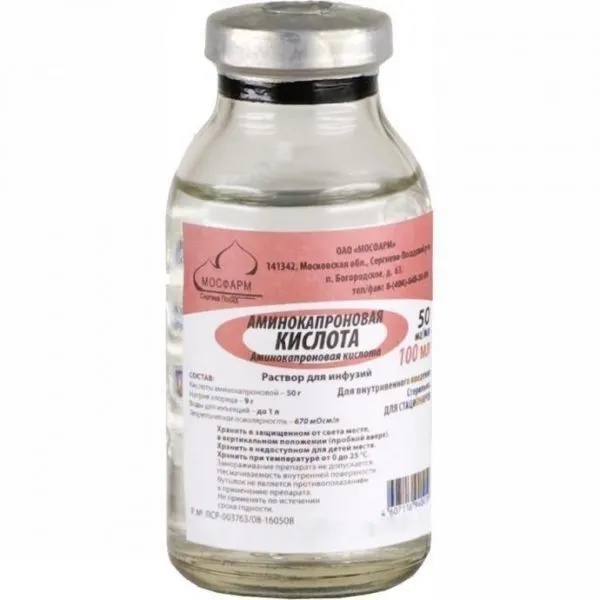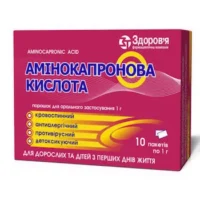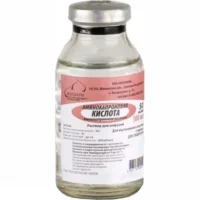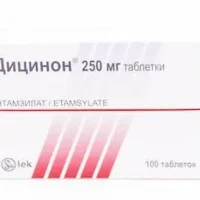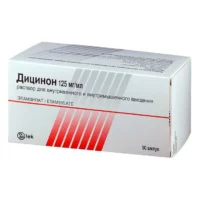Description
Aminocaproic Acid (Aminocaproic Acid) Solution for Infusions 50 mg/ml. 100 ml. №1 Vial
Ingredients:
Aminocaproic acid solution for infusions contains 50 mg/ml of aminocaproic acid as the active ingredient.
Mechanism of Action:
Aminocaproic acid functions as an antifibrinolytic agent by inhibiting the activation of plasminogen, thereby preventing the breakdown of blood clots.
Pharmacological Properties:
The pharmacological properties of aminocaproic acid include its ability to stabilize blood clots and reduce bleeding by blocking fibrinolysis.
Indications for Use:
Aminocaproic acid is indicated for the treatment of excessive bleeding resulting from surgical complications, urinary bleeding, and conditions involving hyperfibrinolysis.
Contraindications:
Contraindications for aminocaproic acid include a history of hypersensitivity to the drug and caution is advised in patients with a history of thromboembolic events.
Side Effects:
Common side effects of aminocaproic acid may include nausea and diarrhea. Patients should be monitored for signs of thrombosis during treatment.
Usage Instructions:
For adults, the typical dosage of aminocaproic acid is 4 to 5 grams administered intravenously, followed by a maintenance dose of 1 gram per hour. Dosage adjustments may be necessary based on individual patient needs.
Benefits Compared to Analogues:
Aminocaproic acid offers an effective antifibrinolytic treatment option with a well-established safety profile, making it a valuable choice in managing bleeding disorders.
Suitable Patient Groups:
Aminocaproic acid can be used in various patient populations, including adults, children, and the elderly, under appropriate medical supervision.
Storage and Shelf Life:
Store aminocaproic acid as per the manufacturer’s instructions, typically at room temperature. Check the expiration date on the packaging and do not use expired products.
Packaging Description:
The product is available as a 100 ml solution for infusions in a single vial packaging.
Scientific Evidence:
Studies have demonstrated the efficacy of aminocaproic acid in inhibiting fibrinolysis and reducing bleeding in various clinical scenarios.

